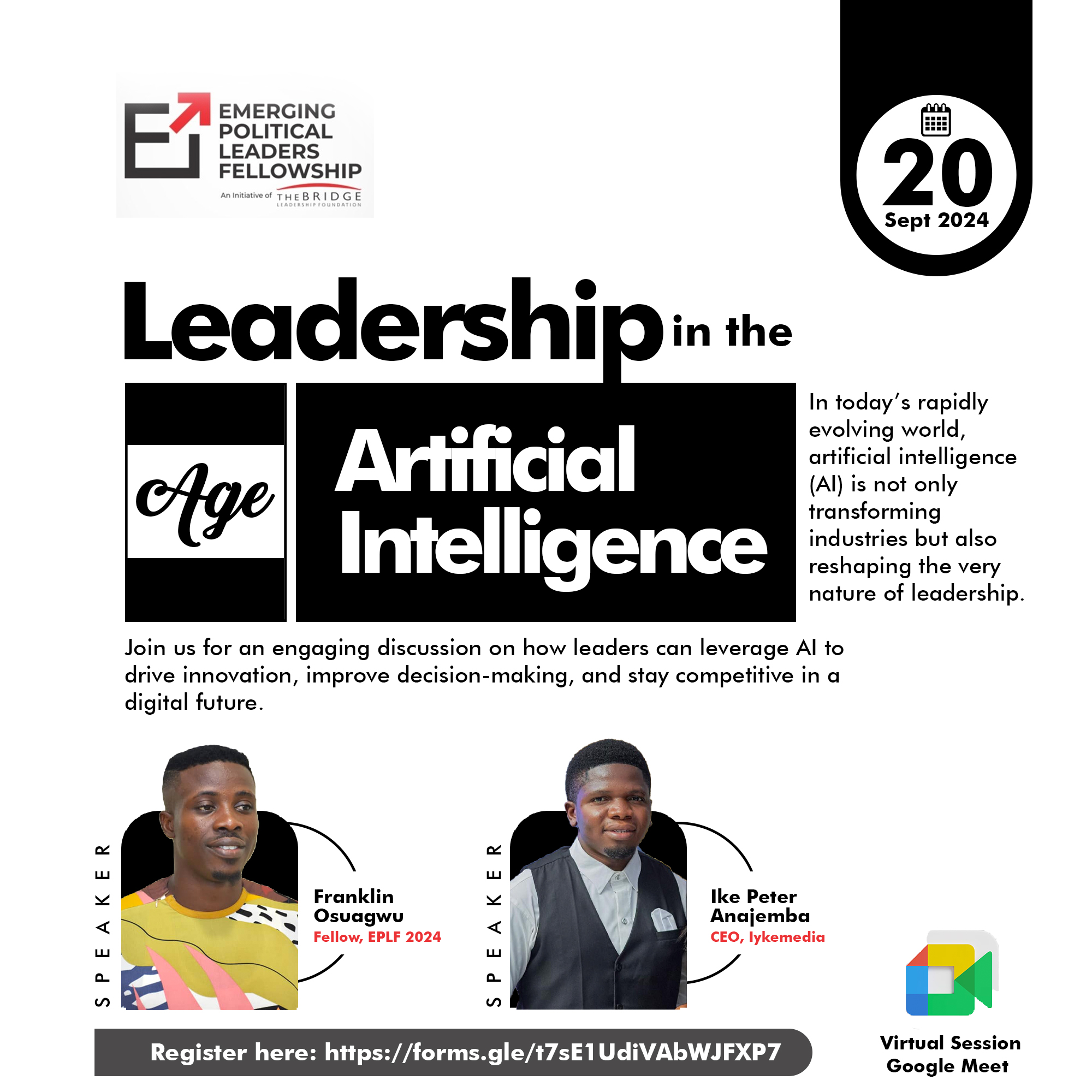As part of the Emerging Political Leaders Fellowship, a civic engagement initiative titled “Leadership in the Age of Artificial Intelligence” was undertaken on September 20, 2024, by Franklin Osuagwu to explore how emerging leaders can navigate the evolving landscape shaped by technology, especially AI. The objective was to understand its far-reaching implications and embrace its transformative potential while avoiding common pitfalls.
Core Objectives
This initiative was born out of several discussions with young people who expressed growing concerns about the lack of political mentors and the disconnect between technology, and governance. It became evident that while technology was advancing rapidly, many leaders tasked with making critical decisions were unaware of AI’s impact on governance and leadership, so are the younger ones looking up to them. AI is often seen as distant or reserved for tech experts, but its influence permeates every aspect of society, including government structures and leadership circles. The importance of this issue becomes even more pronounced considering the warnings of industry leaders like Dr. Masiyiwa.
Key Outcomes
The initiative brought together youths and professionals through an online session, which provided deep insights into both visionary leadership and the enthusiasm and skepticism surrounding AI. Many participants admitted being tribesmen other than good citizens which have affected the way they respond to national issues. They also acquiesced to having limited knowledge of AI’s role in governance and decision-making. However, through the interactive discussions, they had a clear understanding of what visionary leadership should be and the awareness of AI’s relevance to leadership and governance, particularly in its potential to improve service delivery, enhance transparency, and increase efficiency in government processes.
The initiative also succeeded in breaking down the stereotype that AI is only for tech enthusiasts, instead highlighting its potential for solving real-world challenges.
As a tangible result of the engagement, many participants pledged to integrate AI knowledge into their strategic planning and business operations. This proactive approach to AI adoption marked a significant step toward embracing the technology’s potential for growth and innovation.
Expected Outcomes
The civic engagement initiative has laid the groundwork for several outcomes that are expected to materialize in the coming months. Capacity building is one key area, as more young people are expected to seek additional training on several digital skills especially A.I, particularly its application in their everyday lives. Interest is already growing among participants who want to delve deeper into the ways AI can assist with data-driven decision-making. Resources have been provided to enable participants to continue self-development in this area.
Next Steps
The “Leadership in the Age of Artificial Intelligence” initiative is the beginning of a larger movement to ensure that leaders are prepared for the AI revolution. Moving forward, follow-up workshops will be organized to deepen the understanding of AI among interested participants. These workshops will focus on practical applications of AI in business, governance, and public service delivery. A particular focus will be on equipping youths in the community with various digital skills through a planned workshop targeting 100 young people by 2025.
Networking is another critical next step. Building a network of tech-enthusiasts will allow for continued collaboration, insights, and partnerships. Connections will be fostered between participants, AI experts, researchers, and tech firms to further enhance knowledge and practical application of AI in leadership.
Leadership in the age of artificial intelligence is an evolving conversation. It is essential to prepare today for the challenges and opportunities of tomorrow. This civic engagement has made significant strides in positioning emerging leaders for the future, ensuring that AI becomes a tool for empowerment and progress, rather than a source of fear or confusion. The dialogue will continue, with the goal of making AI an integral part of leadership and governance transformation.

